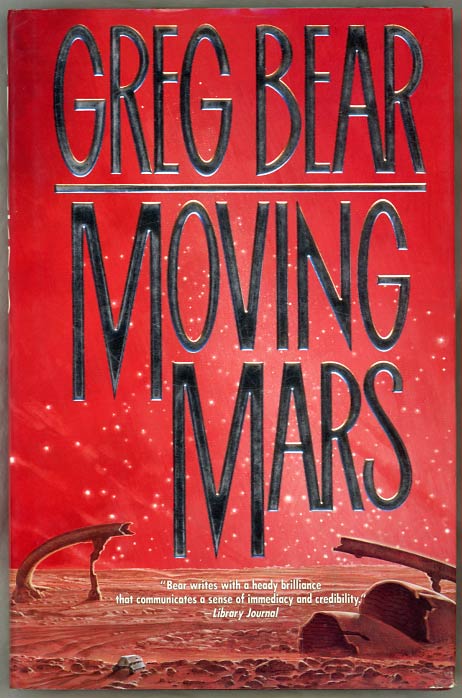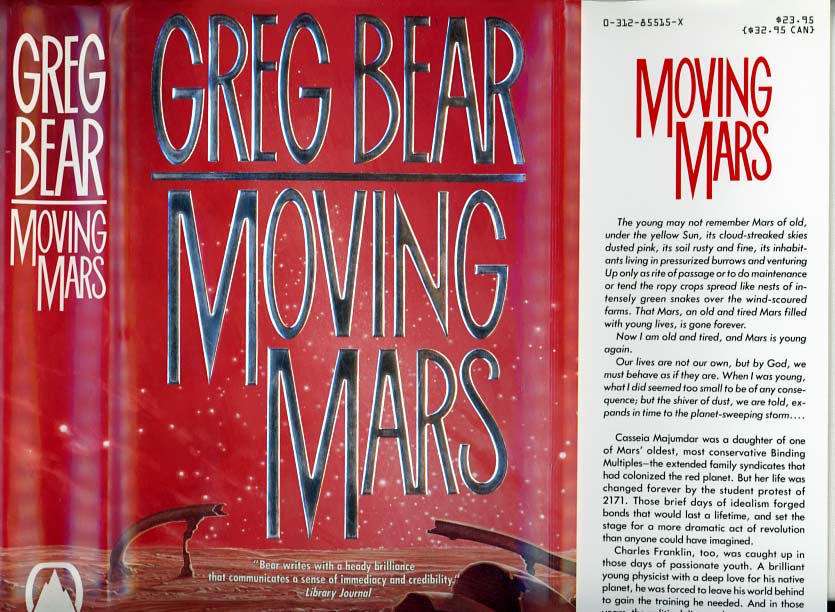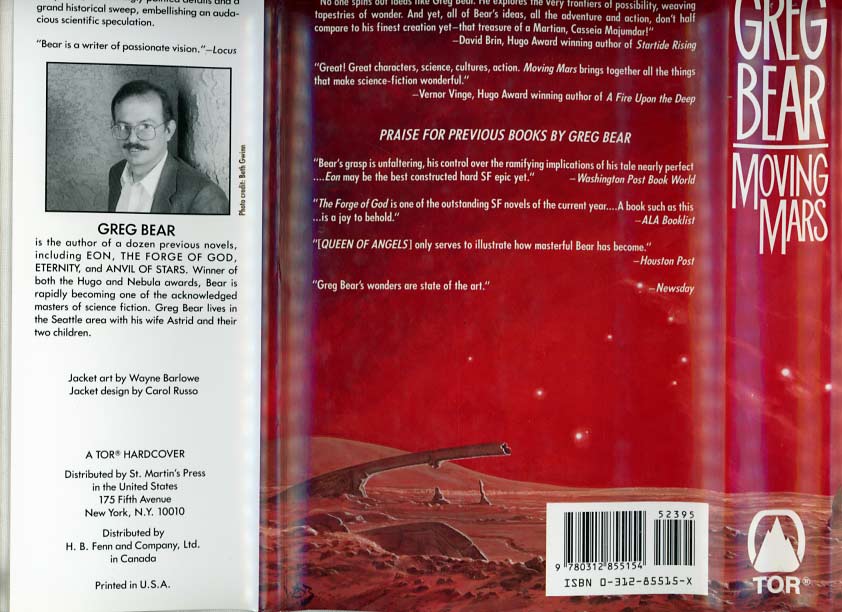
author:
title:
Bear, Greg
MOVING MARS
book-date: 1993
edn-date:
printing:
format:
cvr art:
cvr price:
GRADING:
1993
1st
(Tall) Hardcover
Wayne Barlowe
$23.95
Book= Fine
Dustjacket= Fine-
TOR "First Edition" November 1993 hardcover (number sequence is intact: 10 9 8 7 6 5 4 3 2 1.) Cover by Wayne Barlowe, 448 pages. (Size is 6-1/2" by 9-1/2") Condition is Fine in a Fine (-) dustjacket: book is very tight and square with the usual slight bumping at top & bottom of spine; age tanning is negligible. Dustjacket is unclipped ($23.95 price) and has no tears; the only wear is a hint of rubbing on back cover (see scan.) A very clean copy that looks unread.
The first Nebula Award-winning novel by Greg Bear: Moving Mars. Greg Bear came into prominence in the Eighties with stories and novels which were award nominees and winners. Short fiction "Blood Music" and "Tangents" won both Hugo & Nebula awards, and "Hardfought" won a Nebula. I would call him a literary descendant of Arthur C. Clarke, for his hard-science approach mixed with a strong sense of wonder. In the Nineties, he won "best novel" Nebulas for Moving Mars and Darwin's Radio. In an introduction to one of his collections, Bear comments on why he thinks SF is so fascinating: "I classify sense of wonder as a strong emotion. The modern scientific equivalent of epiphany is what I call the "intellectual high," when a revelation has been handed down so magnificent, so mind-expanding, that exaltation is the only reasonable response. Science fiction, then, sometimes has the trappings of a modern religion - a cult religion for the skeptical, for the unfettered thinker." No wonder I like this guy and what he writes! I strongly recommend this one.
Casseia Majumdar was a daughter of one of Mars' oldest, most conservative Binding Multiples - the extended family syndicates that had colonized the red planet. But her life was changed forever by the student protest of 2171. Those brief days of idealism forged bonds that would last a lifetime, and set the stage for a more dramatic act of revolution than anyone could have imagined. Charles Franklin, too, was caught up in those days of passionate youth. A brilliant young physicist with a deep love for his native planet, he was forced to leave his world behind to gain the training he needed. And in those years, the political distance between Earth and Mars was growing wider than the empty reaches of interplanetary space.
Moving Mars is set in the same future history as the novels Queen of Angels and Slant, plus the short novel Heads. The relationship is not very tight - no characters are in common that I know of. This was the winner of the Nebula Award for Best Novel in 1995, and a Hugo-nominee in 1994.


